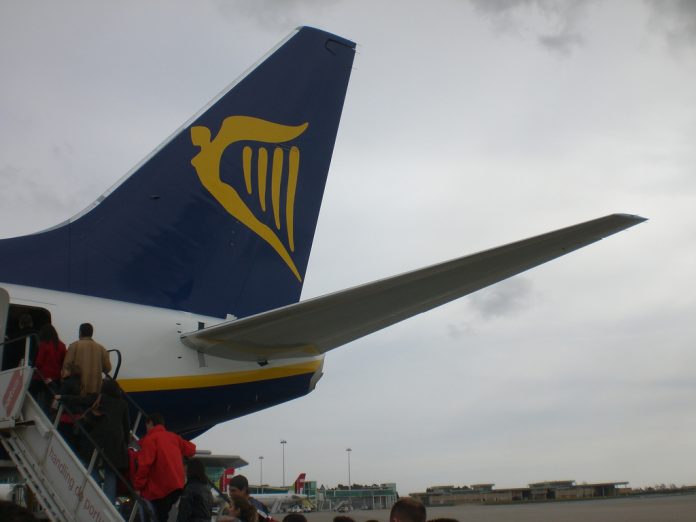Pilots flying for the Irish low-cost airline Ryanair called a 24-hour strike on August 10. Pilots based in Ireland, Germany, Sweden, the Netherlands and Belgium will join the action.
The Dutch pilots’ union VNV became the latest to join on August 8. In a statement the union said the strike action was a “wake up call” for Ryanair management.
As reported by Ireland’s National Public Service Media (RTE), the airline late last year said it would recognise unions but has so far not agreed any collective labour deals with staff across Europe.
The union is demanding improved pay and conditions for Ryanair pilots, but said today that Ryanair had ruled out any increase in staff costs.
The strike among pilots based in Germany will affect all flights from Germany, the union Vereinigung Cockpit said in a statement.
Ryanair has confirmed that it will cancel 250 flights to and from Germany over the strike, representing around 10% of the more than 2,400 flights it had scheduled across Europe for August 10.
The airline had already cancelled 146 flights for August 10 as a result of the strikes planned in Ireland, Sweden and Belgium.
The union is demanding improved pay and conditions for Ryanair pilots, but said today that Ryanair had ruled out any increase in staff costs, reported RTE.
The Irish pilots at Ryanair are in dispute over base transfers, seniority and leave.
The Irish Air Line Pilots’ Association said there was no transparent system for the allocation of annual leave and promotion and it is seeking an agreement to “provide our member pilots directly employed by Ryanair” with a fair mechanism to understand base transfers.
In a separate report, the Agence France-Presse (AFP) noted that Germany’s powerful Cockpit union said it had asked its 400 Ryanair pilots to walk off the job for 24 hours from 03:01 am (0101 GMT) on August 10, affecting all outbound flights.
“We are extremely sorry for the affected passengers. The responsibility lies with Ryanair management,” Cockpit president Martin Locher told a press conference on August 8.
According to AFP, Europe’s second biggest airline has been grappling with staff unrest since it recognised trade unions for the first time in December 2017, in a bid to ward off widespread strikes over the Christmas period.
But unions say their calls for better wages and fairer contracts have gone unheard, and no progress has been made despite months of negotiations.

